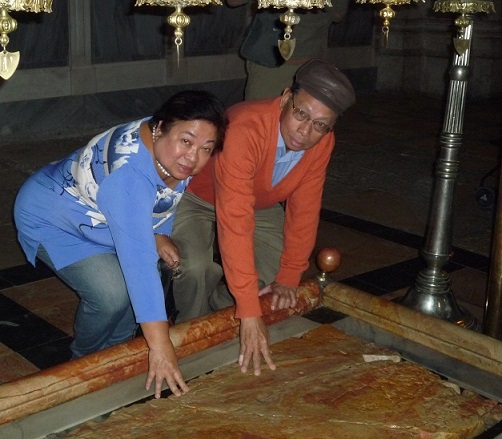‘Call her Ganda:’ The life and death of Jennifer Laude

For FREE immigration consultation, CLICK HERE. Use Code: THE FILAM
We will never know.
On watching the documentary “Call her Ganda,” I was reflecting October 11, 2014 was probably the last time Jennifer Laude would be entertaining American servicemen in Olongapo for some R&R. After that, she would be moving to Germany to marry her German fiancé Marc Sueselbeck. Her visa had been approved days before.
At least that’s the plan, according to Marc, the devoted boyfriend. The wedding dress was already bought.
The wedding did not happen because Jennifer would be killed by an American serviceman, Private First Class Joseph Scott Pemberton, a junior Marine officer from Massachusetts. She was strangled, her head dunked into a toilet bowl. The cause of death: asphyxiation by drowning. The motive: She was, undisclosed to him, a transgender woman.
The brutally honest film “Call her Ganda” recreates Jennifer’s final moments and highlights the social and political issues confronting countries, like the Philippines, that host U.S. military forces. At the time of the killing in 2014, Pemberton’s ship was one of five Navy ships docked in Olongapo’s Subic Bay as part of a regular military exercise.
As recounted in the film by award-winning director PJ Raval, on the night of October 11, Jennifer and friend Barbie Gelviro took a tricycle to Ambyanz Disco, a place where sex workers are known to hang out. They arrived at 10:30 p.m. Fifteen minutes later, Pemberton and three other Marines entered the club. According to narrator Meredith Talusan, a trans journalist, Jennifer was exhausted as she had been with three other clients. But the women are known to make the most of their time when American soldiers come to town. She agreed to go with Pemberton to Celzone Lounge across from Ambyanz for drinks. With Gelviro as witness, the two negotiated the rate: Jennifer wanted P5K, but Pemberton only wanted to pay P1K, the equivalent of $25. She agreed to the lower rate.

The film captures the perspectives of three women: Jennifer’s mother Julita Laude, family lawyer Virginia Suarez, and narrator Meredith Talusan
After about 30 minutes, Pemberton walked casually out of the room alone and leaving the door slightly open. He seemed “unperturbed” as he passed the front desk. When 15 minutes passed and Jennifer had not yet come out, the bell boy entered the room and found her lifeless body, her head halfway into the toilet bowl. As news of the killing spread and reached authorities, the five Navy ships were on lockdown immediately so that no serviceman could leave the Philippines.
“It is not a simple case of murder,” says labor lawyer Virginia Suarez, who represented the Laude family together with then-human rights lawyer Harry Roque. Suarez said in the film the incident highlights the unequal relationship between a “colonizer and a colony.”
Friends characterized Jennifer as an “intelligent” and “elegant” trans woman. “She is the leader we all listen to,” one friend said in the film. “The smartest of all of us.”
Jennifer’s mother Julita Laude shared it was from her daughter’s earnings as a beautician that the family was able to build a house. She says the house gave worth and “value” to Jennifer’s life, and people would not look down on her.
Narrator Talusan said the murder “exposed to the Philippines both the reality of trans women and the violence that they face daily.”
Charged with homicide, Pemberton has served four years of his 6- to 10-year sentence. He is currently detained in Camp Aguinaldo, the first American serviceman to ever be convicted of a crime in the Philippines.
© The FilAm 2018












